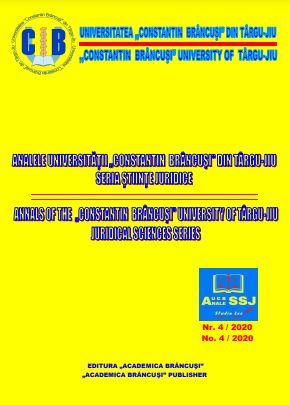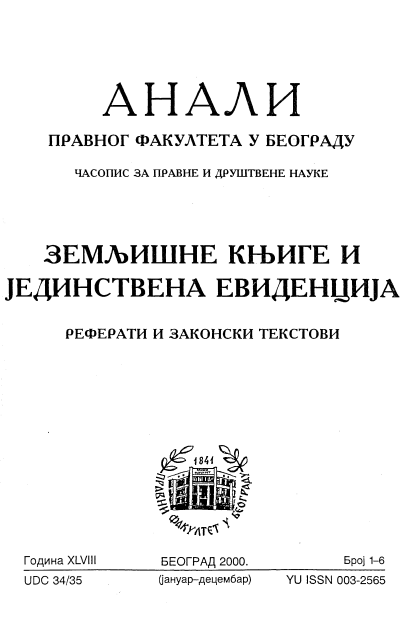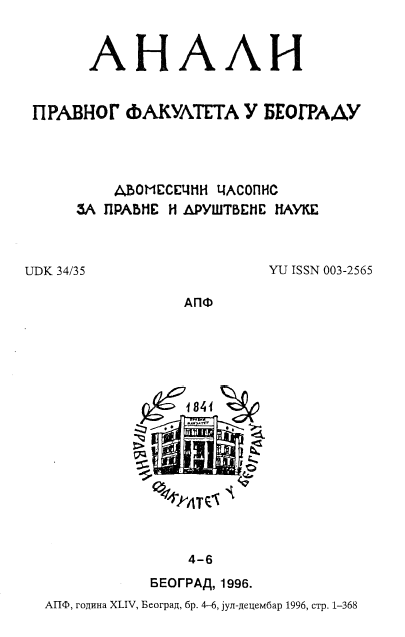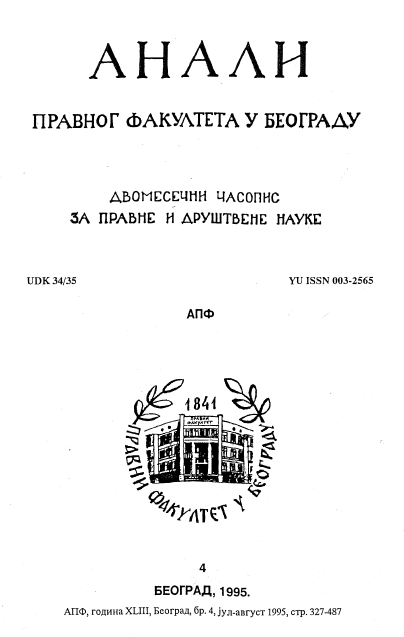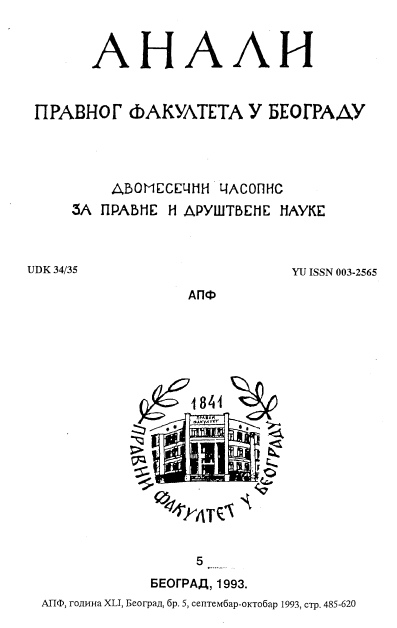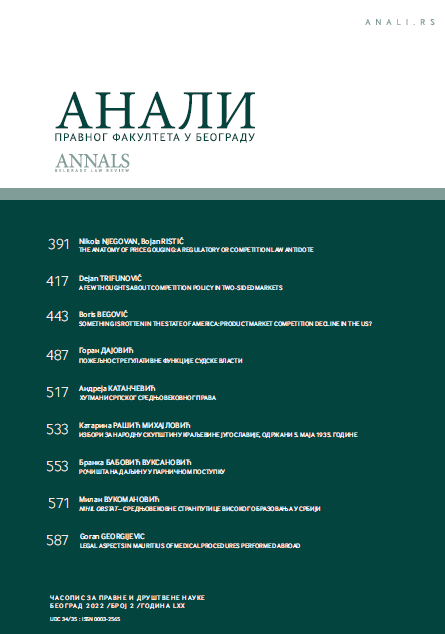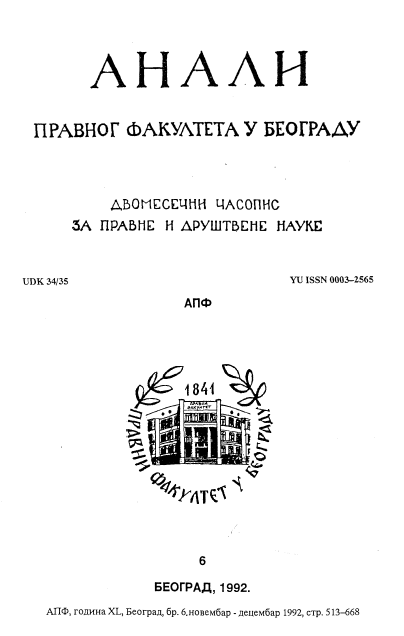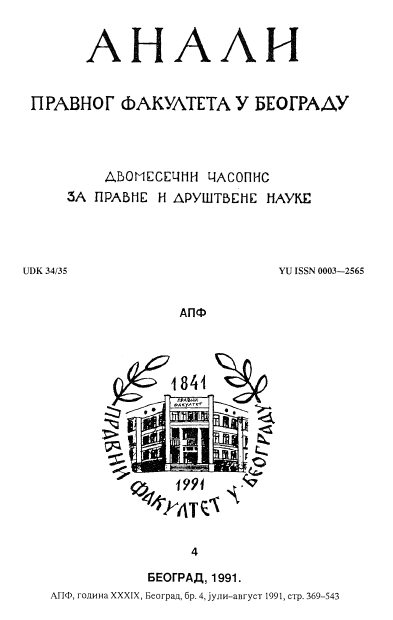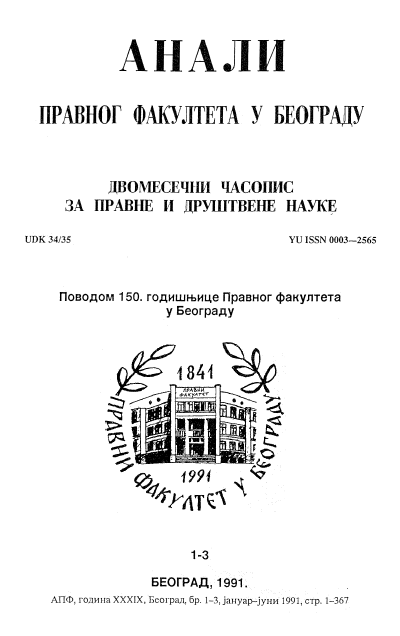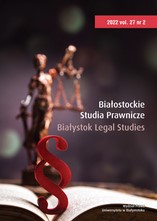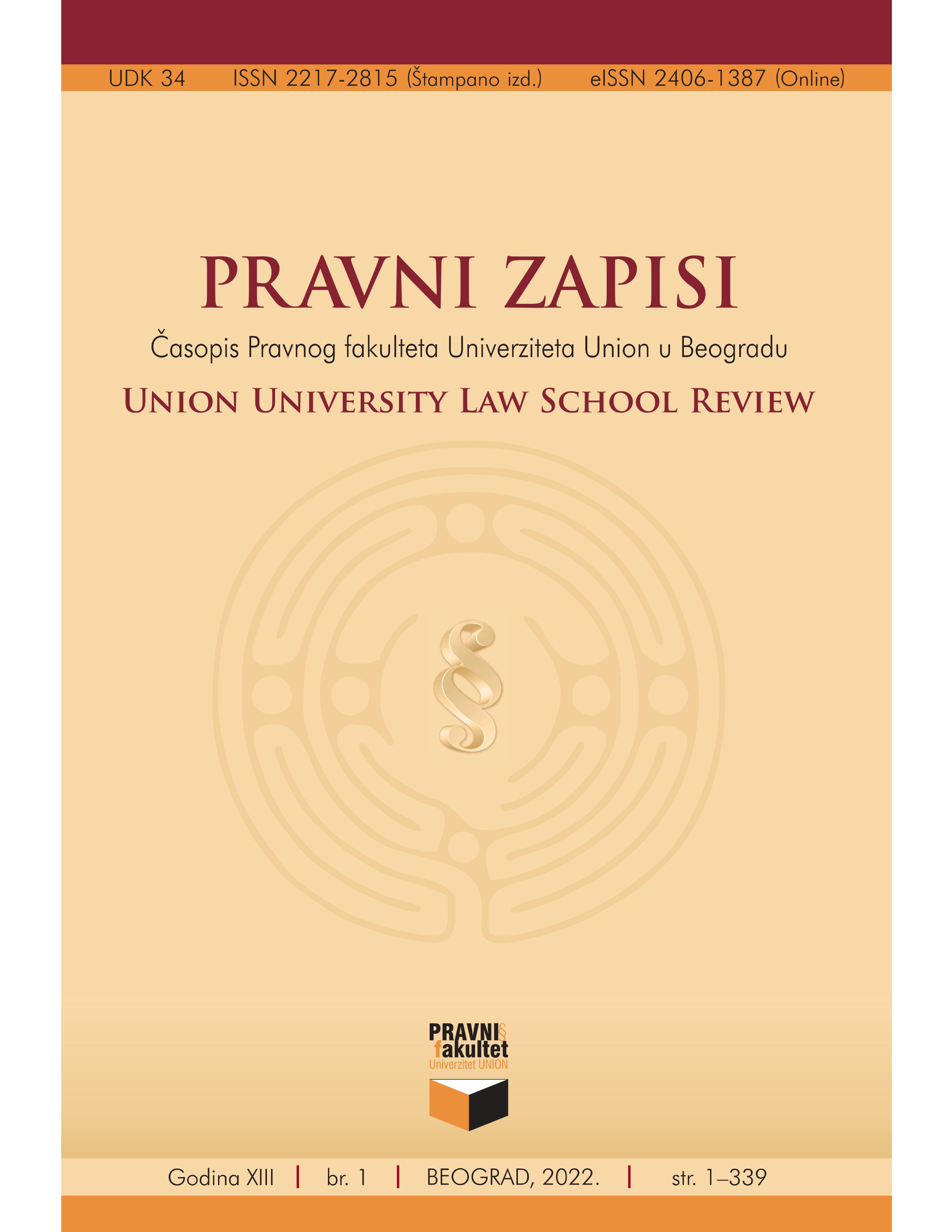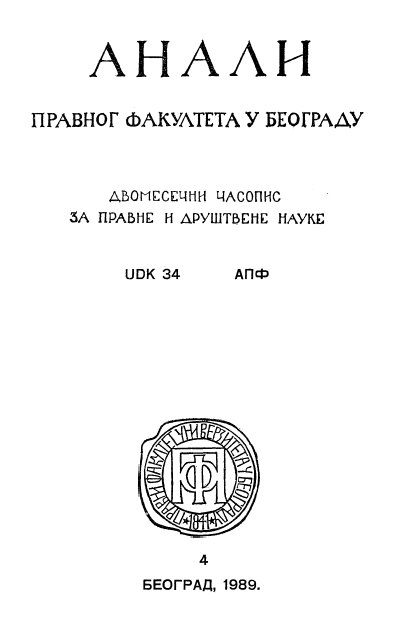Author(s): Stevan Lilić / Language(s): Serbian
Issue: 1-3/1991
Due to great social, economic, and technological changes in contemporary world, and more particularly in Eureope, Yugoslav theory of administrative law is also interested in two issues of conception. The first relates to the subject - matter and substance of administrative law, while the other, closely connected to the first one, to the sources of that branch of law. In contrast to contemporary trends in the development of administrative and administrative - law theory and practice (basically expressed by most eminent Yugoslav authors in this fiels -1. Krbek, N. Stjepanović, D. Denković, E. Pusić and others), some other Yugoslav authors (and more particularly P. Dimitrijević, R. Marković, Z. Tomić, Z. Jelić and others) propose the so - called narrow conception of the subject - matter of administrative law, according to which this discipline is reduced exclusively to the form of execution of power. These authors would like to return the administrative law to the »substance from the times of the creation of state capitalism’, namely of the end of the last and the beginning of the present century. The analysis of the narrow conception, however, shows not only its obsolescence as compared to the theories and real situation in developed European countries, but also its objective relationship with the model of so - called »withering away of state", namely of administration by means of its strengthening. The second conceptual issue relates to the sphere of sources of administrative law, and more particularly to the role sources of administrative law, and more particularly to the role of so - called specific official gazette as a „secret" source of Yugoslav administrative law, and its incompatibility with the general principles of the rule of law, of legal security and the state of law.
More...
